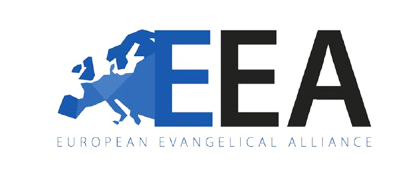More than 30 evangelical organisations and “countless churches” engaged in welcoming “forced migrants in need of refuge”. European Evangelical Alliance calls believers to “follow in Jesus’ way of sacrificial charity”.
“Inspired by both Old and New Testament ethics, our evangelical Protestant convictions claim that the approach to asylum and migration cannot first be one of security and defence”. This is one of the central ideas of the European Evangelical Alliance’s (EEA) approach to the refugee crisis in Europe.
In a statement (read and download full document here), the EEA encourages both political leaders and Christian individuals and organisations to react with wisdom and courage.
“Migrants must not be viewed as enemies or invaders, but humans above all”, the EEA says. “Migration is intrinsic to being human, which may lead us to wonder why the current humanitarian and refugee crisis should be called a ‘Migrant Crisis’ as such. It is the lack of viable alternatives that drive uprooted women, children and men to risk crossing deserts and seas to seek refuge in the European Union (EU) and other industrialised countries”.
How should believers and citizens in general respond? According to the EEA, “Christians are called to an ethic of justice, compassion and integration of the foreigner, and especially of protection of vulnerable people. We believe these values are universal; that governments and all individuals must stand for justice, refusing to listen to the sirens of demagoguery, populism or xenophobia”.
This is why “we claim for justice and compassion to guide the decisions of our political leaders and for evangelical churches of all European lands to be exemplary, united and prophetic in their actions and advocacy on behalf of the common good”, the text reads.
THE BIBLE IS CLEAR: DO GOOD TO THOSE IN NEED
“The Bible, our supreme authority in all matters of faith and conduct, includes multiple stories of migration”, the EEA argues.
“It says that God ‘hears’ the blood of the innocents ‘cry’ to him and people’s cry because of their oppressors, whether the innocents are at home or emigrants (e.g. Genesis 4:10, 9:5-6, Exodus 3, Deuteronomy 21)”.
“Some of Jesus’ most powerful words ring poignantly as he identifies himself with the destitute. Our passion to worshipfully serve God should therefore lead to no hesitation to do good to people in need of support and shelter (see Matthew 4 & 5 or Luke 10:25-37). We are to follow in Jesus’ way of sacrificial charity (1 Peter 2:21-25)”.
CHRISTIANS MAY HAVE DIFFERENT APPROACHES TO SOLUTIONS
The statement admits that “the Bible’s call to help those in need does not provide a complete answer to the question of how the EU or individual countries should design their migration policies”.
“Here Christians will come to different conclusions, insofar as they are compatible with biblical ethics. Political demonisation or glorification of different standpoints creates polarisations rather than a constructive public debate”.
“Although policy considerations of a just help to refugees are difficult, the Christian Church has a moral responsibility to extend welcome and help those in need, irrespective of their world-view or convictions”.
“We cannot be governed by fear, mere emotion or naïveté. So we pray fervently for God’s will to be done on earth as it is in heaven. Churches must be united in their compassionate service to Christ and Christians must see this crisis response as an opportunity to grow together as disciples of Jesus”.
 The EEA unites hundreds of thousands of evangelical Christians across Europe.
The EEA unites hundreds of thousands of evangelical Christians across Europe.MANY CONTRIBUTING WITH PRACTICAL HELP
The EEA also informs about some of the practical action taken by Christians all over Europe. There are “special national working groups, like in Italy, Switzerland or Germany. Evangelical organisations in the UK, Belgium, Germany and the Netherlands are supporting financially and operationally efforts in the Middle East and in countries of transit like Turkey, or in Greece, where Greek Christian workers and volunteers help with sanitation, health-care and renovations of reception centers”.
“At least 30 Evangelical national or international agencies and NGOs, including many Evangelical Alliances, and countless local alliances, organisations and churches, communities and simple volunteer groups are mobilised to respond, probably totalling several thousand Evangelical staff and volunteers”.
Read the full EEA “Statement on the current ‘refugee crisis’ and Evangelical responses”.

Las opiniones vertidas por nuestros colaboradores se realizan a nivel personal, pudiendo coincidir o no con la postura de la dirección de Protestante Digital.
Si quieres comentar o